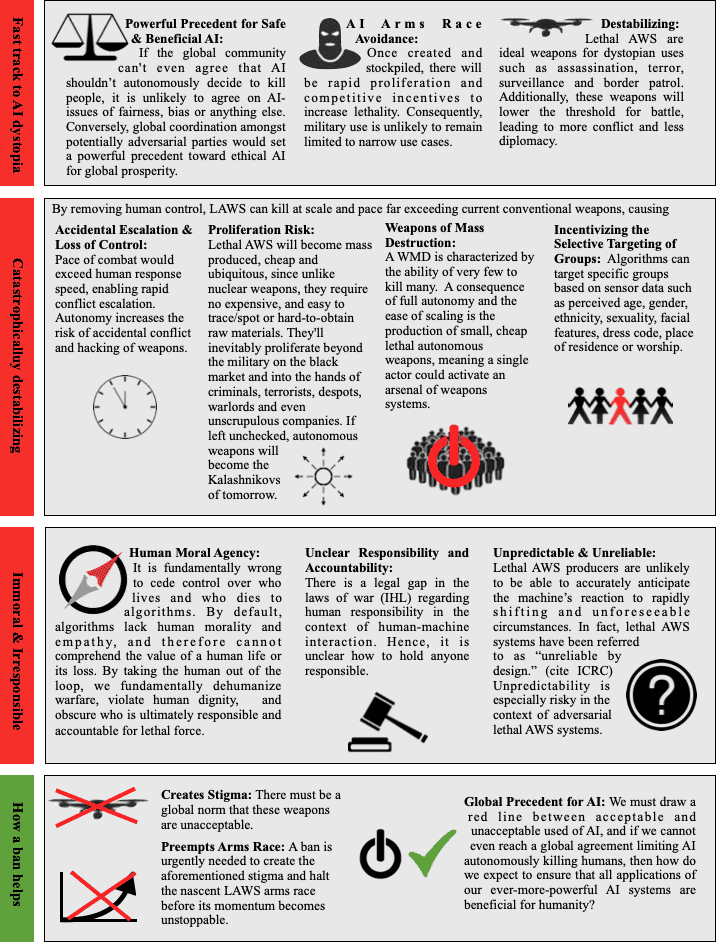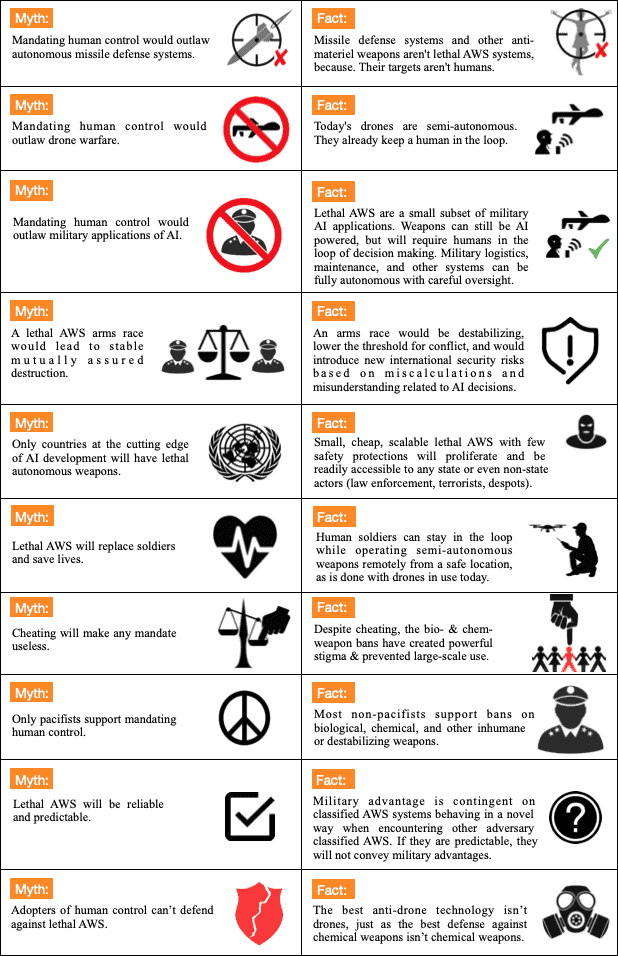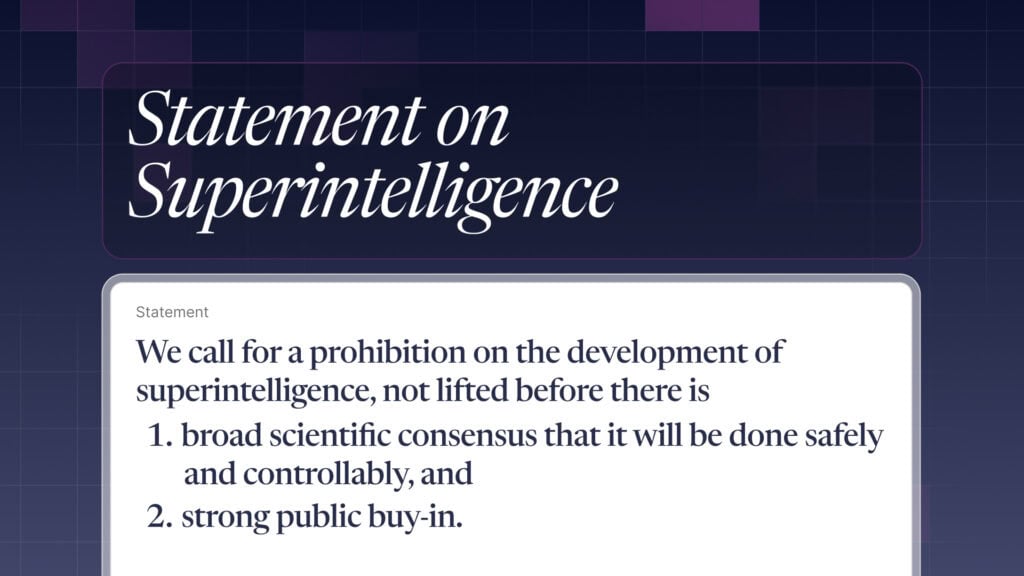Autonomous Weapons Systems
Slaughterbots
are here

Sign up to the newsletter

Policy advocacy
The push to prohibit Slaughterbots
Slaughterbots, also called ‘autonomous weapons systems’ or ‘killer robots’, are weapons that use Artificial Intelligence (AI) to identify, select, and kill human targets without human intervention. Though these weapons sound futuristic, reports of their use are starting to mount up. The Future of Life Institute considers slaughterbots to be both immoral and a major threat to global security.
Mobilising countries behind a new treaty
The FLI policy team encourages the formation of a new treaty on autonomous weapons. Alongside a majority of the world’s states, FLI argues that some autonomous weapons must be banned – specifically, those which target humans, which are highly unpredictable, or which function beyond meaningful human control. FLI, alongside the Red Cross, calls for other autonomous weapons – those that can be meaningfully controlled by humans – to be regulated.
Our videos
Raising the alarm on autonomous weapons
Slaughterbots and the urgent fight to stop them
Slaughterbots – if human: kill()
Slaughterbots
Our resources on Autonomous Weapons
Learn more
Discover how autonomous weapons are shaping our world.
Autonomous Weapons Watch
Check out our new autonomous weapons database to discover the most concerning autonomous weapons being developed and sold today. With weapons covering land, air, and sea, our database reveals the scale of this technology today.
We will soon be providing quarterly trend reports on the AI weapons deing developed and used on the battlefield.

A Diplomat’s Guide to Autonomous Weapons
A quick-start guide on autonomous weapons and the policy landscape surrounding the topic. Intended for diplomats who are new to the topic of autonomous weapons, or are needing a primer on the topic, our comprehensive guide covers: What AWS are; Why they pose significant risks; Common myths and misconceptions; A timeline of developments on the way to a treaty; States’ positions; And more.
Take a stand.
Autonomous Weapons Open Letter: AI & Robotics Researchers
Lethal Autonomous Weapons Pledge
Autonomous Weapons Open Letter: Global Health Community
Sign up to the newsletter
Related content

An introduction to the issue of Autonomous Weapons

Why support a ban on Autonomous weapons?

Top Myths and Facts on Human Control of Autonomous Weapons

FLI’s Position on Autonomous Weapons
Other projects in this area

Control Inversion

